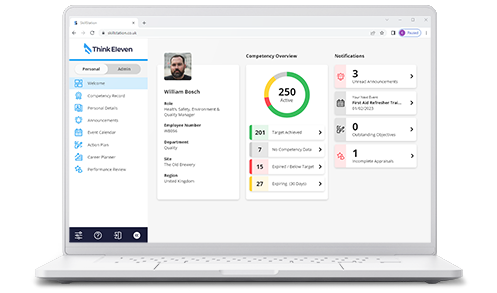What are soft skills? How do they differ from technical hard skills? And, what makes these skills so important?
When hiring a new employee or measuring the capability of your existing workforce, the common and most natural reaction is to assess the technical ability or ‘Hard Skills’. This is a great start, as these are the key capabilities that determine a person’s ability to complete their roles/responsibilities in a competent, unsupervised manner. Hard skills are therefore essential for the organisation’s day-to-day running i.e., deliver the service and/or product to the client.
Soft skills on the other hand, whilst a bit more difficult to measure, are easily overlooked when assessing a CV / resume. These skills relate more closely to HOW a person works, for example, listening skills, time management, and creativity. They often can be related to attitude & behaviours or the core values of a person.
Consider the following two scenarios:
- A competent person (with many years’ experience) has a poor attitude toward colleagues, management, and the organisation
- A relatively inexperienced person (perhaps someone who joined the team recently) formed a strong relationship with all colleagues, motivates others, and sometimes voluntarily works beyond their contracted hours.
Which of the above is the “best fit” for an organisation? Both inexperience and a poor attitude present different challenges, and whilst the answer to this question is going to flex and change dependent on the finer detail of the kind of role this person fulfils, it’s going to be worth remembering the difference between soft and hard skills we mentioned earlier. Soft skills tend to be based in attitude and values, which can be difficult to change or teach. Whereas hard skills tend towards technical ability – arguably easier to train and upskill. For more information on this point, check out our other blog article here.
Examples of soft skills
Below are some examples of Soft Skills. Whilst this isn’t exhaustive, it will hopefully give you a broader idea of what constitutes as a soft skill.
- Adaptability
- Communication
- Conflict management
- Creativity
- Critical thinking
- Decision-making
- Leading people and the organisation
- Managing people
- Networking
- Openness to criticism
- Organisation
- Persuasion
- Problem-solving
- Resourcefulness
- Stress management
- Teamwork
- Time management
What makes these skills so important is they can be applicable to almost any role. A technically proficient employee might not be successful in the workplace if they struggle to work within a team, manage time or communicate effectively. Soft skills are also great because they are transferable skills, making for an agile and effective workforce.
Assessing soft skills
Because of the nature of soft skills, they’re quite often perceived as being difficult to measure and evaluate, requiring a more thoughtful assessment process (it’s very difficult to define what “competent” means for “resourcefulness”; therefore, the approaches for assessing soft skills will be different to hard skills, and may even vary between different soft skills.
Accurately and consistently measuring/recording soft skills & technical ability is made much easier with a system such as SkillStation. This is largely because of the array of assessment methods that SkillStation provides. These methods can be combined with one another to create a robust assessment process that accounts for an employee’s values and attitude-based skill set.
Want to learn more about soft skills and how SkillStation can help record and manage skills and training information? Speak to one of our team – we’re happy to help!

